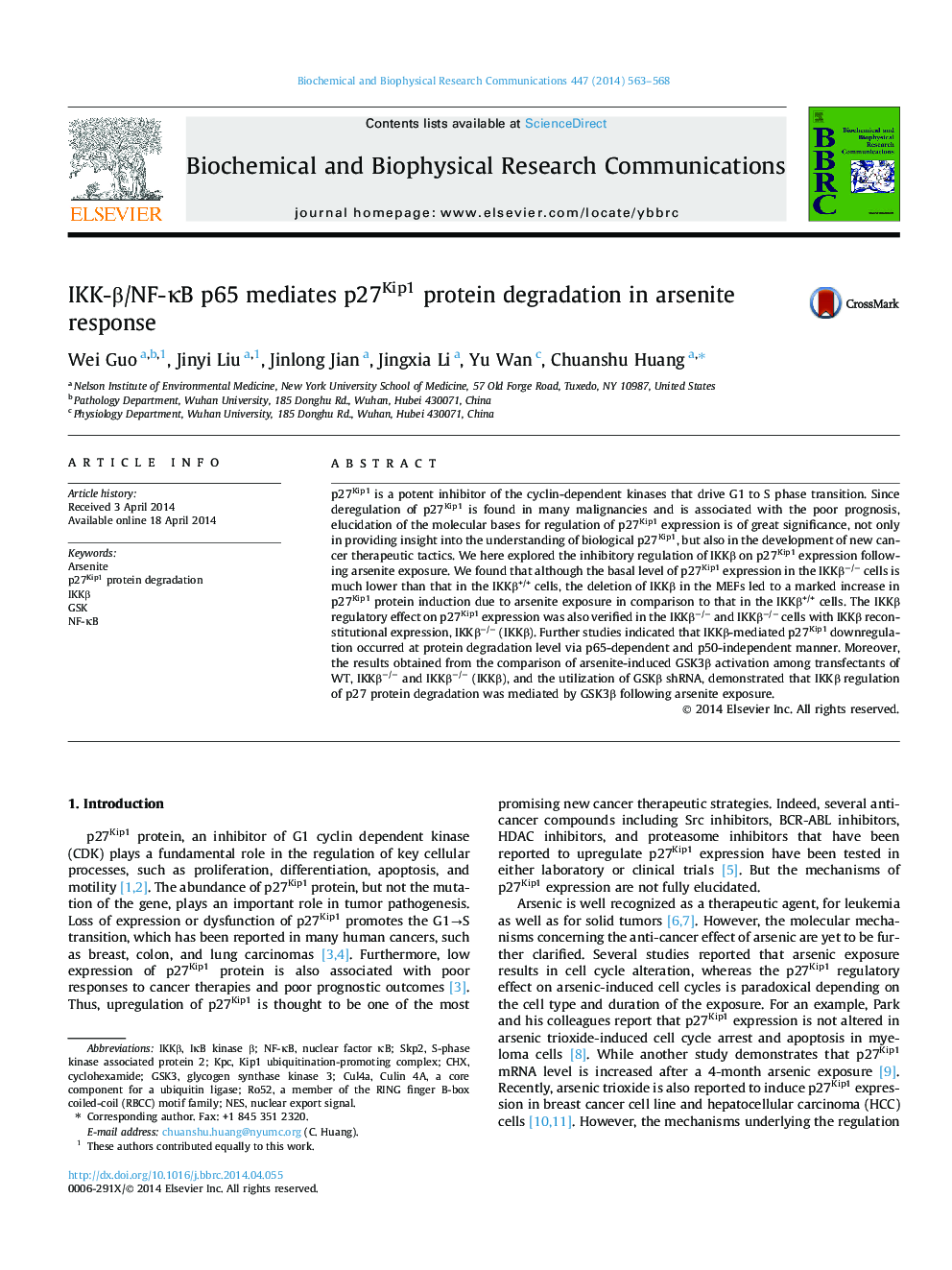| Article ID | Journal | Published Year | Pages | File Type |
|---|---|---|---|---|
| 10754946 | Biochemical and Biophysical Research Communications | 2014 | 6 Pages |
Abstract
p27Kip1 is a potent inhibitor of the cyclin-dependent kinases that drive G1 to S phase transition. Since deregulation of p27Kip1 is found in many malignancies and is associated with the poor prognosis, elucidation of the molecular bases for regulation of p27Kip1 expression is of great significance, not only in providing insight into the understanding of biological p27Kip1, but also in the development of new cancer therapeutic tactics. We here explored the inhibitory regulation of IKKβ on p27Kip1 expression following arsenite exposure. We found that although the basal level of p27Kip1 expression in the IKKβâ/â cells is much lower than that in the IKKβ+/+ cells, the deletion of IKKβ in the MEFs led to a marked increase in p27Kip1 protein induction due to arsenite exposure in comparison to that in the IKKβ+/+ cells. The IKKβ regulatory effect on p27Kip1 expression was also verified in the IKKβâ/â and IKKβâ/â cells with IKKβ reconstitutional expression, IKKβâ/â (IKKβ). Further studies indicated that IKKβ-mediated p27Kip1 downregulation occurred at protein degradation level via p65-dependent and p50-independent manner. Moreover, the results obtained from the comparison of arsenite-induced GSK3β activation among transfectants of WT, IKKβâ/â and IKKβâ/â (IKKβ), and the utilization of GSKβ shRNA, demonstrated that IKKβ regulation of p27 protein degradation was mediated by GSK3β following arsenite exposure.
Keywords
Related Topics
Life Sciences
Biochemistry, Genetics and Molecular Biology
Biochemistry
Authors
Wei Guo, Jinyi Liu, Jinlong Jian, Jingxia Li, Yu Wan, Chuanshu Huang,
